Ditapis dengan

Objective Knowledge: An Evolutionary Approach
The essays in this volume represent an approach to human knowledge that has had a profound influence on many recent thinkers. Popper breaks with a traditional commonsense theory of knowledge that can be traced back to Aristotle. A realist and fallibilist, he argues closely and in simple language that scientific knowledge, once stated in human language, is no longer part of ourselves but a separ…
- Edisi
- -
- ISBN/ISSN
- -
- Deskripsi Fisik
- x + 380 pg.; 22 cm.
- Judul Seri
- -
- No. Panggil
- 121 POP o
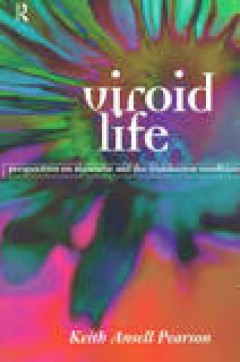
Tahu dan Pengetahuan: Pengantar ke Ilmu dan Filsafat
- Edisi
- -
- ISBN/ISSN
- -
- Deskripsi Fisik
- 120 hlm.; 18,5 cm.
- Judul Seri
- -
- No. Panggil
- 121 POE t
- Edisi
- -
- ISBN/ISSN
- -
- Deskripsi Fisik
- 120 hlm.; 18,5 cm.
- Judul Seri
- -
- No. Panggil
- 121 POE t
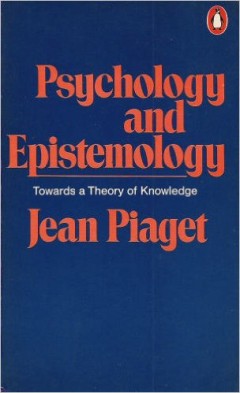
Psychology and Epistemology: Towards a Theory of Knowledge.
- Edisi
- -
- ISBN/ISSN
- 0713903376
- Deskripsi Fisik
- viii + 107 pg.; 21,5 cm.
- Judul Seri
- -
- No. Panggil
- 121 PIA p
- Edisi
- -
- ISBN/ISSN
- 0713903376
- Deskripsi Fisik
- viii + 107 pg.; 21,5 cm.
- Judul Seri
- -
- No. Panggil
- 121 PIA p
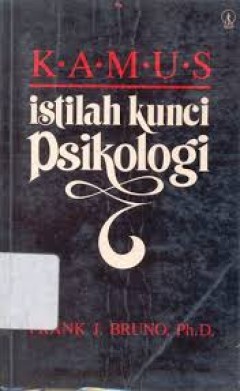
Cognition: An Epistemological Inquiry
"Cognition" is a basic introductory text for college courses in the philosophy of knowledge. Joseph Owens here expands the narrowly metaphysical treatment of knowledge given in his earlier book, "An Elementary Christian Metaphysics" into a fully-fledged epistemology. This text utilises the traditions of Aristotle and Thomas Aquinas to reacquaint students of philosophy with a number of insights …
- Edisi
- -
- ISBN/ISSN
- 0268007918
- Deskripsi Fisik
- viii + 373 pg.; 23 cm.
- Judul Seri
- -
- No. Panggil
- 121 OWE c

Experience and Its Modes
- Edisi
- -
- ISBN/ISSN
- -
- Deskripsi Fisik
- viii + 359 pg.; 22 cm.
- Judul Seri
- -
- No. Panggil
- 121 OAK e
- Edisi
- -
- ISBN/ISSN
- -
- Deskripsi Fisik
- viii + 359 pg.; 22 cm.
- Judul Seri
- -
- No. Panggil
- 121 OAK e
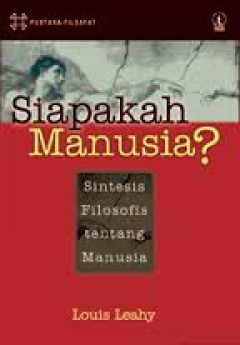
Filsafat Ilmu
- Edisi
- -
- ISBN/ISSN
- 9799289483
- Deskripsi Fisik
- xii + 179 hlm.; 21 cm.
- Judul Seri
- -
- No. Panggil
- 121 MUS f
- Edisi
- -
- ISBN/ISSN
- 9799289483
- Deskripsi Fisik
- xii + 179 hlm.; 21 cm.
- Judul Seri
- -
- No. Panggil
- 121 MUS f

Phenomenology of Perception
- Edisi
- -
- ISBN/ISSN
- -
- Deskripsi Fisik
- xxi + 466 pg.;
- Judul Seri
- -
- No. Panggil
- 121 MER p
- Edisi
- -
- ISBN/ISSN
- -
- Deskripsi Fisik
- xxi + 466 pg.;
- Judul Seri
- -
- No. Panggil
- 121 MER p
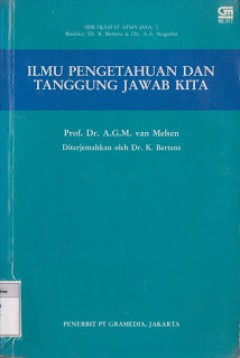
Ilmu Pengetahuan dan Tanggung Jawab Kita
Belum pernah terjadi suatu zaman seperti sekarang ini, ketika manusia sangat sadar akan kekuasaannya atas realitas. Namun bersamaan dengan itu timbul pula rasa gelisah dan tak berdaya akibat perkembangan ilmu dan teknologi. Di tengah hutan persepsi tentang apakah ilmu itu, terdapat dua gambaran yang dominan. Gambaran pertama memperlihatkan ilmu pengetahuan sebagai sistem pernyataan-pernyataan y…
- Edisi
- -
- ISBN/ISSN
- -
- Deskripsi Fisik
- xiv + 157 hlm.; 21 cm.
- Judul Seri
- -
- No. Panggil
- 121 MEL i

Durkheim, Bernard and Epistemology.
- Edisi
- -
- ISBN/ISSN
- 07100003846
- Deskripsi Fisik
- vi + 212 pg.; 21,5 cm.
- Judul Seri
- -
- No. Panggil
- 121 HIR d
- Edisi
- -
- ISBN/ISSN
- 07100003846
- Deskripsi Fisik
- vi + 212 pg.; 21,5 cm.
- Judul Seri
- -
- No. Panggil
- 121 HIR d
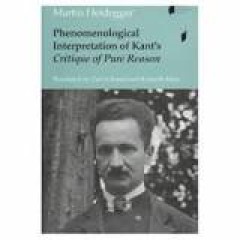
Phenomenological Interpretation of Kant's Critique of Pure Reason
The text of Martin Heidegger’s 1927–28 university lecture course on Emmanuel Kant’s Critique of Pure Reason presents a close interpretive reading of the first two parts of this masterpiece of modern philosophy. In this course, Heidegger continues the task he enunciated in Being and Time as the problem of dismatling the history of ontology, using temporality as a clue. Within this context …
- Edisi
- -
- ISBN/ISSN
- 0253332583
- Deskripsi Fisik
- xxi + 296 pg.; 24 cm.
- Judul Seri
- -
- No. Panggil
- 121 HEI p
 Karya Umum
Karya Umum  Filsafat
Filsafat  Agama
Agama  Ilmu-ilmu Sosial
Ilmu-ilmu Sosial  Bahasa
Bahasa  Ilmu-ilmu Murni
Ilmu-ilmu Murni  Ilmu-ilmu Terapan
Ilmu-ilmu Terapan  Kesenian, Hiburan, dan Olahraga
Kesenian, Hiburan, dan Olahraga  Kesusastraan
Kesusastraan  Geografi dan Sejarah
Geografi dan Sejarah